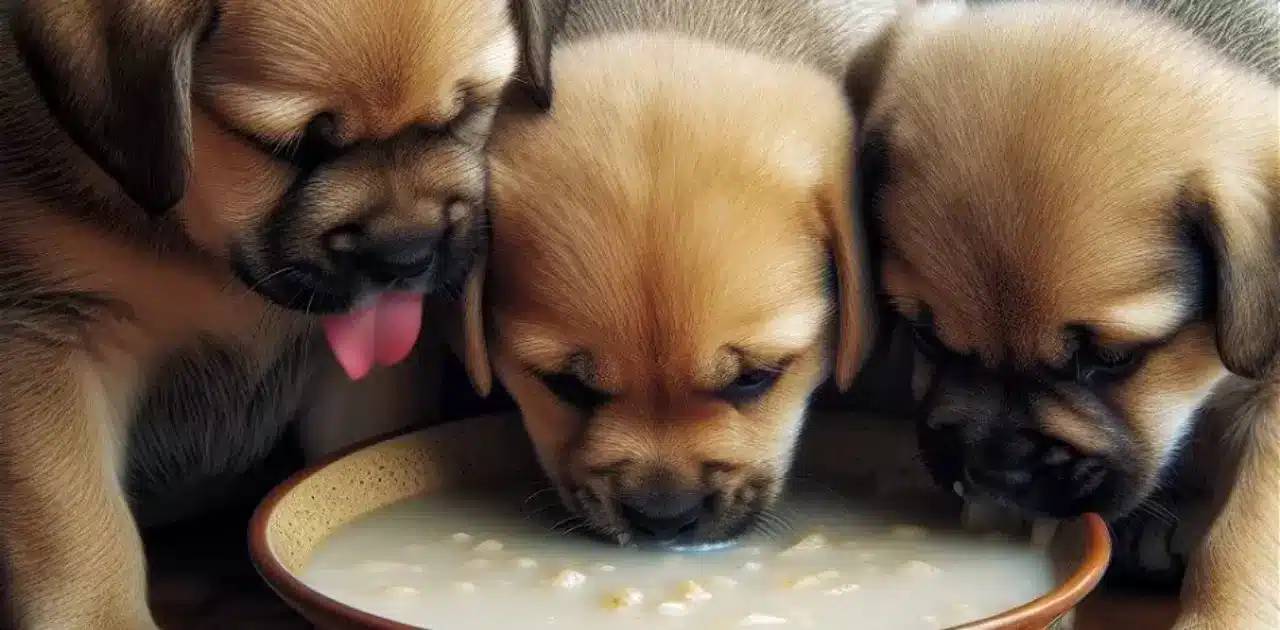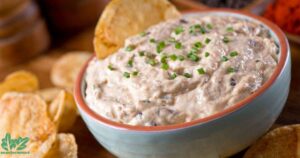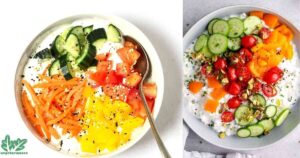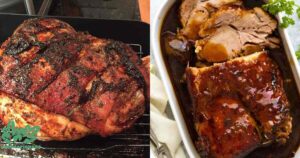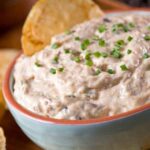Puppies rely on their mother’s milk for essential nutrients and antibodies right after birth. This early stage is crucial for their development and immune health.Their dietary needs change as they grow.
Around 2.5 to 3 weeks old puppies start exploring water. A shallow dish of lukewarm clean water helps them begin this transition. Keeping the water clean is important for their developing immune systems.
By 3.5 weeks, puppies can start eating a watery gruel made from puppy food. This helps them move from milk to solid food smoothly. By 6 to 8 weeks, they are ready for solid kibble or canned food appropriate for their size.
Puppy Development Stages
In the journey from newborn to adolescence, puppies go through critical development stages, particularly when transitioning from mother’s milk to solid food.
Birth to Weaning
From birth to around three weeks old puppies rely completely on their mother’s milk for nutrition. During this time, they focus on sleeping and feeding. Their digestive systems are not yet ready for solid food. At about four weeks they start showing interest in solid food marking the beginning of the weaning process.
Weaning Process
The weaning process begins when puppies are around three to four weeks old. Initially they are introduced to a soft mushy mixture of puppy food and water or formula. The consistency is thickened as they get used to eating solid food. By six to eight weeks puppies are primarily eating solid food and are usually fully weaned from their mother’s milk.
Nutritional Needs for Puppies

We all want our puppies to grow up healthy and strong which is why understanding their nutritional needs is crucial. From the right time to introduce solid food to monitoring their water consumption let’s make sure we’re giving our little friends what they need.
Also if one or more puppies is significantly smaller than the others see our article on fattening up a runt.
Read more this: How Much Wet Food To Feed A Cat?
Starting on Solid Foods
Puppies start transitioning to solid foods at about 3 to 4 weeks old. Initially they are given a soft, mushy mixture of high protein puppy food with water or formula. This gradual introduction helps them adjust to the new texture. By 8 weeks they should be eating mostly solid food.
Water Intake for Puppies
Puppies begin drinking water around 3 weeks old when they start eating solid food. It’s important to provide fresh, clean water at all times. Change the water several times a day to encourage them to drink. Proper hydration is essential for their growth and health.
Puppy Feeding Schedules
When we start introducing puppies to solid food it is crucial to follow a structured schedule. This ensures they get the nutrition they need without overfeeding.
Feeding Frequency
Initially, puppies should be fed three to four times a day starting at 4 weeks old. This frequent feeding supports their rapid growth and energy needs. By 6 to 12 weeks, they transition to three meals per day. After 6 months, they typically eat two meals a day.
Portion Sizes
Portion sizes for puppies vary based on their breed and size. It’s important to measure their food with a proper measuring cup.
| Puppy Size | Average Weight | Portion Per Meal (up to 6 months) | Portion Per Meal (after 6 months) |
| Small | 1-10 lbs | 1/4 – 1/2 cup | 1/2 – 3/4 cup |
| Medium | 10-25 lbs | 3/4 – 1 cup | 1 – 1 and 1/2 cups |
| Large | 25-50 lbs | 1 and 1/2 – 2 cups | 2 – 3 cups |
| Giant | 50-100 lbs | 2 – 4 cups | 3 – 4 and 1/2 cups |
Adjusting portions based on individual needs and growth is important for maintaining a healthy weight.
Choosing the Right Puppy Food

When we pick food for our puppies it is crucial we focus on nutritional balance and age appropriateness to ensure optimal growth.
Commercial Puppy Food
Commercial puppy foods are specifically formulated to meet the nutritional needs of growing puppies. Look for products labeled as complete and balanced, indicating they meet the standards set by organizations like the Association of American Feed Control Officials (AAFCO).
These foods are designed to provide puppies with the essential nutrients they need for optimal growth and development. Consider factors such as the size of your puppy’s breed and any specific dietary requirements they may have when selecting commercial puppy food.
Also read this: When Can I Eat Solid Food After Tooth Extraction.
Homemade Puppy Diets
Homemade puppy diets require careful planning to ensure they meet all of your puppy’s nutritional needs. Consulting with a veterinarian or a board certified veterinary nutritionist is essential to avoid any nutritional imbalances.
When preparing homemade meals, include varied protein sources like cooked chicken turkey or beef along with carbohydrates such as rice or sweet potatoes and certain vegetables for added nutrients. Consider adding specific supplements to ensure a well rounded diet and always avoid ingredients that are harmful to dogs like onions garlic and chocolate.
Transitioning to Adult Dog Food
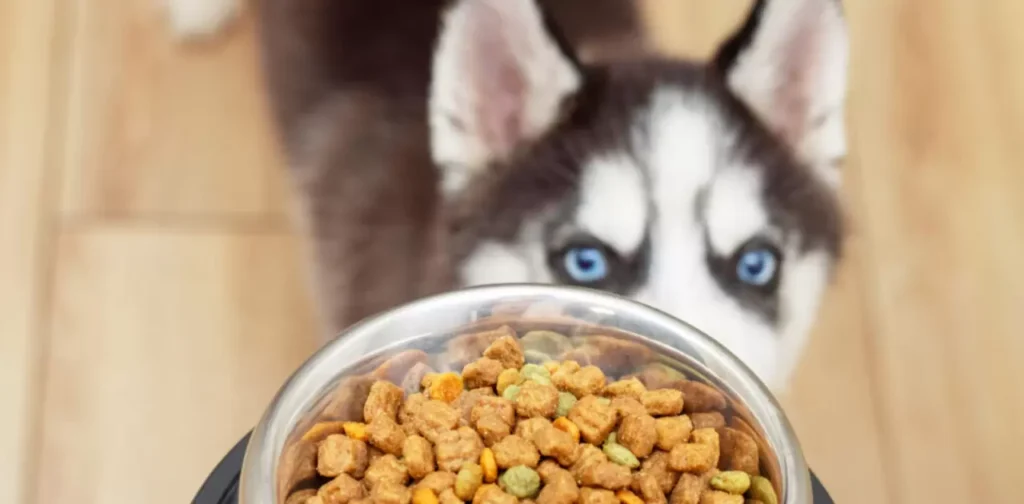
When our puppies grow we need to switch their diet from puppy formula to food that’s formulated for adult dogs. This change is crucial for their long-term health and nutrition.
Age of Transition
The age of transition from puppy food to adult dog food typically occurs between 12 to 18 months of age for most puppies. This timeline can vary based on factors such as the breed of the dog with larger breeds sometimes needing to stay on puppy formulas longer up to 24 months, to support their growth needs.
It is important to monitor your puppy’s growth and consult with your veterinarian to determine the optimal time for transitioning to adult dog food. Gradually transitioning over a period of 7 to 10 days helps prevent digestive issues and allows your puppy to adjust to the new diet.
How to Transition
The switch should be gradual over a period of 7 to 10 days. Here is a straightforward table to guide us:
| Day | Puppy Food | Adult Food |
| 1-2 | 75% | 25% |
| 3-4 | 50% | 50% |
| 5-6 | 25% | 75% |
| 7+ | 0% | 100% |
During the transition period gradually mix increasing proportions of adult dog food with decreasing proportions of puppy food over a period of 7 to 10 days. This gradual transition helps prevent digestive upset and allows your puppy to adjust to the new food.
Puppy Hydration
Ensuring proper hydration for puppies is essential for their overall health and well being. Puppies typically start drinking water at around 3 weeks old when they begin eating solid food.
Provide fresh clean water at all times and change it frequently to encourage drinking. Monitoring their water intake is important to ensure they stay properly hydrated without overdoing it and be vigilant for any signs of dehydration such as dry gums or lethargy.
Monitoring Water Consumption
Monitoring water consumption in puppies is crucial to ensure they stay hydrated without overdoing it. Offer fresh, clean water at all times, and keep track of how much they drink. One method is to mark the water level in the bowl with a piece of tape and note how often you refill it.
Puppies typically drink about half a cup of water every two hours, but individual needs may vary. Regular monitoring helps ensure they are getting enough hydration for their growing bodies.
Signs of Dehydration
Signs of dehydration in puppies include dry gums and nose lethargy decreased energy levels, and sunken eyes.Skin that lacks elasticity when gently pinched can indicate dehydration.
If you notice any of these signs offer your puppy water immediately and monitor their hydration closely. If symptoms persist or seem severe it is important to contact your veterinarian for further advice and assistance.
Physical signs to watch out for
Physical signs to watch out for in puppies that may indicate dehydration include dry gums and nose sunken eyes and decreased skin elasticity. These signs can indicate that your puppy is not getting enough water and may be dehydrated.
If you notice any of these symptoms it is important to offer your puppy water immediately and monitor their hydration levels closely. If the symptoms persist or worsen consult your veterinarian for further guidance and treatment.
What do we do if we spot these signs?
If you spot signs of dehydration in your puppy it is important to take immediate action. Offer your puppy water to drink as dehydration can often be resolved by rehydrating. Encourage them to drink by providing fresh clean water in a shallow dish.
Monitor their drinking behavior closely to ensure they are adequately hydrating themselves. If the symptoms persist or worsen or if you are concerned about your puppy’s health contact your veterinarian for further guidance and assistance.
Common Feeding Issues
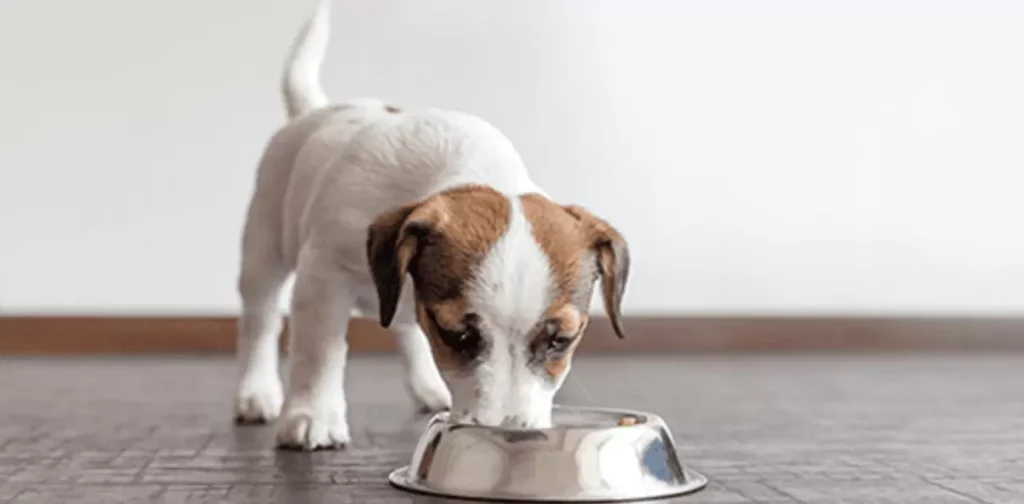
When we start introducing puppies to solid foods it is crucial to be aware of some common feeding issues that can arise. These include the risk of overfeeding leading to obesity as well as potential food allergies and sensitivities.
Overfeeding and Obesity
Overfeeding and obesity are common concerns when it comes to puppy nutrition. It is important to monitor your puppy’s body condition closely to ensure they’re maintaining a healthy weight.
Following recommended feeding guidelines based on your puppy’s breed and size can help prevent overfeeding. Regular exercise is also essential to help manage your puppy’s weight and promote overall health and well-being.
Food Allergies and Sensitivities
Food allergies and sensitivities can affect some puppies causing discomfort and potential health issues. Watch for signs such as itching digestive upset or ear infections which may indicate an allergic reaction to certain foods.
If you suspect your puppy has a food allergy consult your veterinarian for guidance. Consider trying a limited ingredient diet to identify the specific ingredient causing the sensitivity. With careful attention to your puppy’s diet you can help manage and alleviate any food related issues they may experience.
Frequently Asked Questions
What’s a good water intake guideline for an 8-week-old puppy?
A good water intake guideline for an 8-week-old puppy is about half a cup of water every two hours. This amount ensures they stay well-hydrated without overdoing it, which can lead to accidents.
When is it safe for puppies to begin walking around?
Puppies can generally start walking around as soon as they begin to stand and wobble which is usually around the 3rd week. It is important to provide a clean and safe environment for them to explore as they develop their mobility.
At what age should you start weaning puppies off their mother’s milk?
You should start weaning puppies off their mother’s milk when they reach around 4 weeks old. This gradual transition typically takes several weeks as puppies learn to eat solid food while still nursing.
What are some appropriate foods to give a 3-week-old puppy?
Some appropriate foods to give a 3-week-old puppy include a gruel made from a mixture of high-quality puppy formula and puppy kibble soaked in water. This mixture should be easy for them to lap up as they begin to transition from mother’s milk to solid food.
How can you adjust a puppy’s water intake to help with potty training?
To help with potty training, control a puppy’s water intake by offering water at scheduled times, especially after meals or nap times. Gradually increase the times between water offerings as they get older to help regulate their bathroom habits.
What’s the nightly water schedule to keep a puppy hydrated but not overfilled?
A good nightly water schedule for a puppy involves offering a small drink of water about two hours before bedtime. This allows them to stay hydrated overnight without becoming overfilled, minimizing the need for bathroom breaks during the night.
Final Thoughts
When introducing solid food to puppies, it’s crucial to monitor their health and behavior closely. Each pup is an individual and they’ll let you know if the transition is going smoothly. Remember to start weaning pups off mother’s milk and onto solid food between 3 and 4 weeks of age.
Water should be provided to puppies by 4 weeks old to support their hydration needs. Keep an eye on any allergic reactions or food sensitivities as they try new foods. Consistency is key so ensure puppies have a soft mashed-up consistent diet during their transition to solid food.
Maintaining a structured feeding schedule and monitoring portion sizes ensures puppies get the nutrition they need without overfeeding. As they grow gradually transitioning them to adult dog food and adjusting their diet accordingly supports their long term health and well being.

Ethan Henry with 8 years of expertise in bamboo, excels in sustainable design, construction and product development. His passion for eco-friendly solutions has driven innovative advancements in bamboo-based industries.
